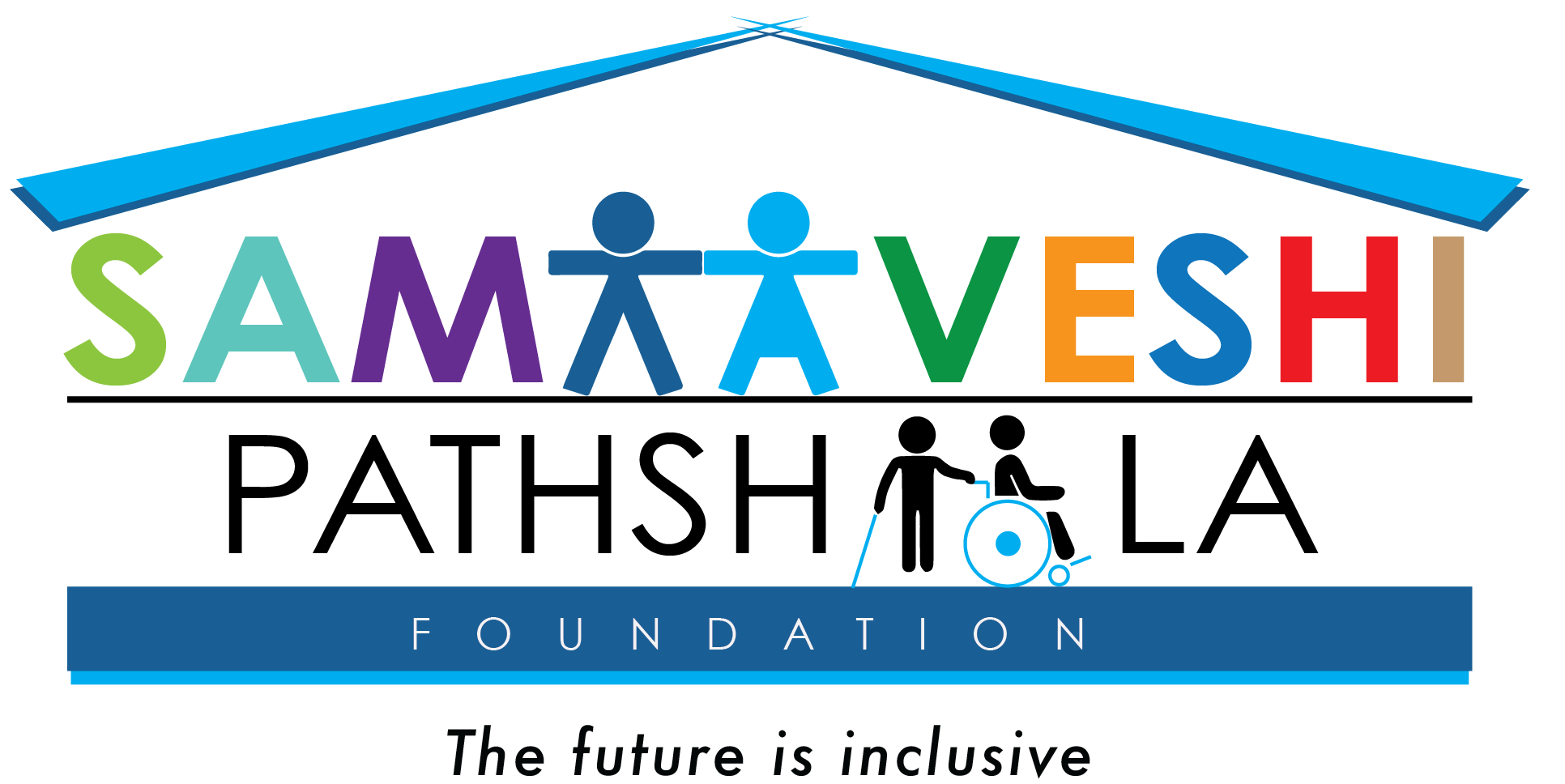Quis autem velum iure reprehe nderit. Lorem ipsum dolor sit nulla or narjusto laoreet onse ctetur adipisci.
Samaaveshi Pathshaala Foundation
About the organization
Samaaveshi Pathshaala Foundation was founded in 2018 to build inclusive classrooms where all children irrespective of their social backgrounds or disability, study together. At the outset, our goal is to address the issue of ‘low enrolment and high dropout of children with disabilities (CWDs)’ in educational institutions. Several studies have shown that children with disabilities are the largest out-of-school group in India. They face discrimination and are denied access to quality education at all levels.
As per a study in 2015 by the United Nations Children’s Fund (UNICEF), 34 percent of children with disabilities were out of school (UNICEF, 2015). According to the Ministry of Human Resources Development (MHRD, 2016), of all CWDs enrolled in the elementary level, only 8.5 percent make it to the secondary level, and a dismal 2.3 percent pursue higher secondary education). Likewise, the United Nations Educational, Scientific and Cultural Organization (UNESCO) claimed in 2019 that among 5-year-olds with disabilities, three-fourths do not attend any educational institution, nor do one-fourth of the CWD aged between 5 and 19 years.
Vision statement: One day, all schools will become ‘inclusive’.
Mission statement: To bring systemic transformation in schools where every child irrespective of their social background or disability has equal access and opportunity to quality education.
While the reasons for low enrolment and high dropout among CWDs can be diverse, it’s mostly because schools fail to address their specific learning needs or offer an inclusive learning environment. While this could be due to limited resources in schools, most often it is the result of a discriminatory mindset towards children (and people) with disabilities. The situation is more serious in rural and tribal areas where there are limited opportunities for healthcare, education, and livelihoods.
Location of intervention
Samaaveshi started its journey on 3 Dec 2018 (World Disability Day) as an Inclusive kindergarten in Kashele village of Karjat block, approximately 80 km from Mumbai. It is a village with a population of more than 3,000 individuals, with a majority belonging to the Katkari tribal community who depend on daily-wage work. The village has three anganwadis, one Zilla Parishad (ZP) primary school, and one govt-aided higher secondary school. It also has a 20-bed rural hospital and a Sub-Health Centre (SHC) that caters to the public health needs of over 50 tribal villages nearby.
Our initial challenges made us realize the need to work on community engagement, and building awareness and acceptance of disability and inclusive education. Thus, we set up a community library cum disability resource center to engage with local children, and their parents, through weekly library-based workshops and events on literacy, creative arts, STEM, diversity, and inclusion.
Gradually, we felt the need to build knowledge and capacity of local educational institutions and stakeholders, to identify CWDs and practice inclusive education. In 2019, we collaborated with Tata Institute of Social Sciences (TISS), Mumbai, and the government’s Integrated Child Development Services (ICDS), to launch a six-month pilot program called Anganwadi teacher training on inclusive education, with a cluster of 10 local anganwadis.
Based on the feedback of this pilot program, we decided to provide a resource kit of multi-sensory teaching-learning materials to each Anganwadi, to enable them to practice inclusive, early education. Bit by bit, we expanded this training to more clusters of anganwadis across the Karjat block, to continue building awareness and skills on disability identification and inclusive education.
Program updates
In 2022, we collaborated with the Block Education Office (BEO), Karjat division, to start a new program called ‘Zilla Parishad (ZP) school inclusive-ed support’, aimed at implementing inclusive education at a ZP primary school in Kashele village for grades one to three. A total of 28 students, including 5 CWDs, were brought under the ambit of the program. This collaboration was important because a majority of these children came from low-income tribal backgrounds and had no access to smartphones or e-learning during the two years of the COVID-19 pandemic.
Thus, our approach was to place two primary teachers, including a special educator, to provide individual support and facilitate inclusive learning following the principles of Universal Design for Learning (UDL), developed by the internationally renowned Center for Applied Science Technology (CAST). The principles of social-emotional learning and activity-based learning were also incorporated to improve attendance, classroom engagement, and learning outcomes.
Plan of action
For 2023-24, we plan to focus on building an ecosystem of inclusive education in Kashele village (Karjat), by working closely with the three anganwadis and one ZP primary school. Our objective is to build the capacity of all stakeholders; provide resources and technical support to identify CWDs, and ensure their inclusion in these learning spaces to deliver quality inclusive education. Our strategy is to place one early educator at each of the three Anganwadis to strengthen its early childhood nutrition and education services and begin handholding Anganwadi teachers on inclusive-ed skills.
Similarly, we plan to extend inclusive-ed support to grades one to four at the local ZP school, with 40 plus students including seven CWDs. We also plan to hold regular parent meetings and community events at the ZP school to improve enrolment, attendance, and parental engagement. Besides, we’re looking at collaborating with new CSOs and startups to hold more library-based workshops on STEM, literacy, and inclusion.
We believe this integrated approach of working with local anganwadis, ZP schools, and library-based events will gradually increase awareness and acceptance of inclusive education in Kashele and adjoining villages. This will help us demonstrate Kashele as a model village for inclusive education.

